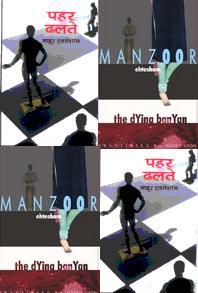
Manzoor Ahtesham

A significant Muslim voice in modern Hindi fiction, Manzoor Ahtesham is known for his nuanced psychological portraits of Indian Muslims in post-colonial India.
Works: Ahtesham is the author of five novels: Kuch din aur (A Few More Days, 1976), Sukha Bargad (A Dying Banyan, 1986), Dastan-e Lapata (The Tale of the Missing Man, 1995), Basharat Manzil (Basharat House, 2004), and Pahar dhalte (At The End of the Day, 2007). His short story collections include Ramzan mem ek maut (A Death During Ramadan, 1982), Tasbih (The Rosary, 1998), and Tamasha tatha anya kahaniyam (The Spectacle and Other Stories, 2001). He has also written several plays, including “Ek tha badshah” (“There Once was a King,” 1980), in collaboration with Satyen Kumar.
Translations into other languages: Manzoor Ahtesham’s work has been translated into English, German, and several Indian languages. His widely acclaimed novel Sukha Bargad was translated by Kuldip Singh as A Dying Banyan (New Delhi: Rupa, 2005). His novel Dastan-e Lapata is currently being translated into English by Jason Grunebaum and Ulrike Stark.
Literary awards: Manzoor Ahtesham has won many literary prizes in India including the Padma Shri (2003), the Bharatiya Bhasha Parishad Puruskar, the Shrikant Verma Smriti Samman, the Virsingh Deo Award (for Dastan-e Lapata), the Vageshwari Award (for Tasbih), the Shikhar Samman, and the Pahal Samman for his collected works. He was also shortlisted for the Sahitya Akademi Award.